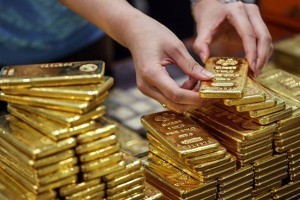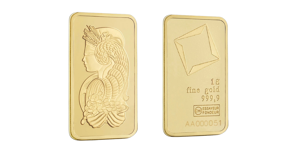Tavex uses cookies to ensure website functionality and improve your user experience. Collecting data from cookies helps us provide the best experience for you, keeps your account secure and allows us to personalise advert content. You can find out more in our cookie policy.
Please select what cookies you allow us to use
Cookies are small files of letters and digits downloaded and saved on your computer or another device (for instance, a mobile phone, a tablet) and saved in your browser while you visit a website. They can be used to track the pages you visit on the website, save the information you enter or remember your preferences such as language settings as long as you’re browsing the website.
| Cookie name | Cookie description | Cookie duration |
|---|---|---|
| tavex_cookie_consent | Stores cookie consent options selected | 60 weeks |
| tavex_customer | Tavex customer ID | 30 days |
| wp-wpml_current_language | Stores selected language | 1 day |
| AWSALB | AWS ALB sticky session cookie | 6 days |
| AWSALBCORS | AWS ALB sticky session cookie | 6 days |
| NO_CACHE | Used to disable page caching | 1 day |
| PHPSESSID | Identifier for PHP session | Session |
| latest_news | Helps to keep notifications relevant by storing the latest news shown | 29 days |
| latest_news_flash | Helps to keep notifications relevant by storing the latest news shown | 29 days |
| tavex_recently_viewed_products | List of recently viewed products | 1 day |
| tavex_compare_amount | Number of items in product comparison view | 1 day |
| Cookie name | Cookie description | Cookie duration |
|---|---|---|
| chart-widget-tab-*-*-* | Remembers last chart options (i.e currency, time period, etc) | 29 days |
| archive_layout | Stores selected product layout on category pages | 1 day |
| Cookie name | Cookie description | Cookie duration |
|---|---|---|
| cartstack.com-* | Used for tracking abandoned shopping carts | 1 year |
| _omappvp | Used by OptinMonster for determining new vs. returning visitors. Expires in 11 years | 11 years |
| _omappvs | Used by OptinMonster for determining when a new visitor becomes a returning visitor | Session |
| om* | Used by OptinMonster to track interactions with campaigns | Persistent |
| Cookie name | Cookie description | Cookie duration |
|---|---|---|
| _ga | Used to distinguish users | 2 years |
| _gid | Used to distinguish users | 24 hours |
| _ga_* | Used to persist session state | 2 years |
| _gac_* | Contains campaign related information | 90 days |
| _gat_gtag_* | Used to throttle request rate | 1 minute |
| _fbc | Facebook advertisement cookie | 2 years |
| _fbp | Facebook cookie for distinguishing unique users | 2 years |
Poland Becomes the World's Largest Gold Buyer

In the third quarter, the Polish Central Bank was the world’s largest buyer of gold for the second quarter in a row, and the activation of Eastern European countries on the gold market is generally noticeable, according to the data published by the World Gold Council (WGC).
Poland increased its reserves by 18.7 tons in the second quarter, and by 42 tons in the third quarter. Purchases have been continued at the end of the year, and by now the country’s reserves have grown to 427 tons. With this, Poland has risen to 12th place in the world in terms of the volume of gold reserves in the financial market among countries.
However, the Poles are not the only ones in Europe who buy gold.
After the war in Ukraine, Czechs, Serbs and Hungarians have also started making larger purchases
Although Poland made a strategic decision to bring its gold reserves to at least 20 percent of the total reserves already before the war, they have also admitted that one of the reasons for buying gold is the war in Ukraine.
In the first half of the year, the focus was mainly on purchases from China, which has been by far the largest buyer of gold in recent years. In 2023 alone, China increased its official reserves by 225 tonnes. It is believed that this number is actually much higher, because in about half of the world’s central bank purchases, it is not known who the buyer is. However, China has not officially increased its reserves in the second half of the year.
However, it is extremely likely that China’s reserves are thousands of tons larger than officially reported. Currently, China’s reserves officially reach 2,264 tons, but it is believed that the real reserves may be in the range of 4,000-15,000 tons.
The Czech Republic Plans to Further Double its Gold Reserves

Now the Eastern European countries have emerged as buyers, offering support to the rise in gold prices. “We need to reduce volatility,” Czech Central Bank Governor Ales Michl told Bloomberg in early November while visiting the country’s gold reserves in London. “For this, we need an asset that has no correlation with stocks. And that property is gold.”
Michl said they aim to double their 100-ton gold reserve within the next three years
Since becoming head of the central bank in 2022, he has already quintupled the Czech Republic’s gold reserves. The Czech Republic has one of the world’s largest investment assets relative to its economy, accounting for almost half of the country’s gross domestic product.
However, the President of the Central Bank of Serbia, Aleksandar Vucic, brought the country’s gold reserves back to Belgrade from Switzerland. The decision is probably related to the fact that half of Russia’s assets in Western countries were frozen after the war in Ukraine. Although Serbia has officially sided with Ukraine in the conflict, the country has not imposed sanctions against Russia.
Hungary and Azerbaijan Are Also Buying Gold

The Central Bank of Hungary also became significantly more active on the gold market
The central bank there announced that it bought a total of 16 tons of gold in September, bringing its reserves to 110 tons. Hungary last increased its reserves in 2021, buying 63 tonnes of gold then.
“Given the uncertainty of the global economy, the role of gold as a safe haven asset and store of value is particularly important. This increases confidence in the country and supports financial stability. Gold continues to be one of the most important reserve assets in the world, which is also reflected by the large purchases of central banks in recent years,”
wrote the Central Bank of Hungary in its press release.
“Gold has played a very important role in various financial systems throughout history. This is a very important addition to foreign exchange reserves, even under normal market conditions,” the press release said.
In 2017, Hungary’s gold reserves amounted to just over 3 tons
In 2018, the reserves were increased tenfold, i.e. they increased to 31.5 tons. They now have 110 tons of gold. Hungary has 0.37 ounces of gold per capita. This means that they have the most gold reserves per capita in Eastern Europe.
The National Oil Fund of Azerbaijan bought 12 tons of gold in the third quarter, this year the fund has bought a total of 25 tons of gold, increasing its total position to 127 tons. This means that as much as 18 percent of the investment portfolio of the country’s oil fund is currently invested in gold.
Survey: Central Banks Plan to Increase Reserves

The annual survey of central banks conducted by the WGC from February to April revealed that countries plan to increase gold reserves for years to come all across the European Union (EU) and internationally. 69 percent of the respondents stated that they plan to increase the share of gold in the central bank’s reserves over the next five years.
In addition, 62 percent of central banks plan to reduce the share of dollar-denominated assets in reserves within five years. Only 20 percent plan to increase the share of the dollar.
Although in the 1990s and the beginning of the new century central banks were rather net sellers of gold, we can now see how this trend has clearly reversed and accelerated in recent years.
Key Takeaways
- Poland’s emergence as the world’s largest gold buyer underscores a growing trend among Eastern European countries and beyond to fortify their financial stability through increased gold reserves.
- The geopolitical landscape, particularly the war in Ukraine, has prompted nations like the Czech Republic, Serbia, and Hungary to view gold as a strategic asset, vital for reducing market volatility and diversifying reserves away from dollar-dominated assets.
- This surge in gold purchases reflects a broader shift among central banks globally, prioritizing gold’s role as a safe haven and hedge against economic uncertainty.
- With countries like China and Azerbaijan also bolstering their reserves, the significance of gold in global financial systems and in national banks continues to rise.
- As this trend gathers momentum, it is evident that gold remains an indispensable pillar of economic security and a critical tool for navigating an unpredictable global economy.
















